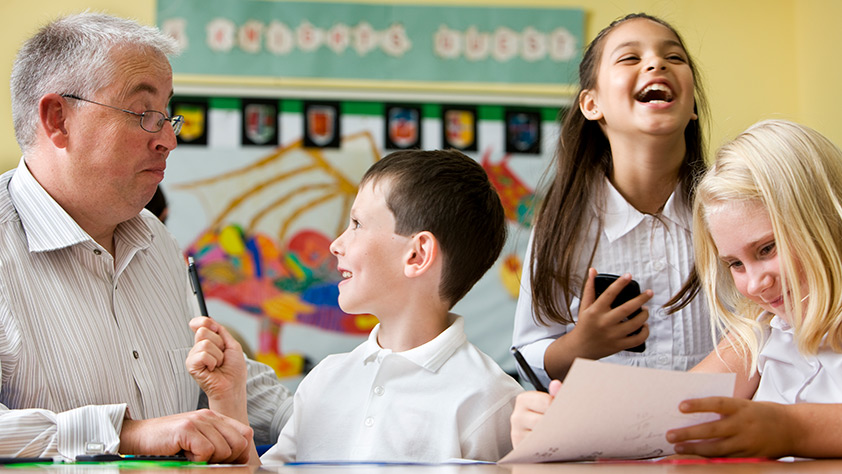So you have this student, or maybe several, who during instructional time try to make their classmates laugh. Sometimes it’s just a look or whispered comment, but it can be a major disruption. It can also be hard to know how to handle.
Should you hold all students who laugh accountable or just the student who started it? Also, if nothing was said, is it fair to follow your classroom management plan?
In the moment, it can seem as if there is no good answer. Darned if you do and darned if you don’t.
You’ll either have students angry at you—“Oh my gosh, I didn’t do anything. I just laughed. Is laughter against the rules?”—or you’ll open the door to more of the same behavior. So what’s the solution?
There are two keys to handling the situation in a way that is both fair and effective.
The first is to set parameters beforehand. In other words, because laughter falls into a gray area, you must sharply define what is and isn’t against the rules ahead of time. In this way, there are no surprises, hurt feelings, or anger towards you.
Doing so is simply a matter of explaining that any behavior that attempts to make other students laugh during instructional time is a disruption and therefore transgresses rule #1 – Listen and follow directions.
You’ll also want to model specific examples using the exact behaviors you’ve seen in the past. The idea is that once defined any student who engages in such behavior will be doing so by choice.
The second key is to only enforce a consequence on the instigator, which attacks the misbehavior at its source and avoids the perceived unfairness of holding accountable those who, sometimes against their will, laughed.
What the student did or said may in fact have been funny.
It’s even okay for you to smile as long as the humor wasn’t inappropriate. Just follow your classroom management plan as promised and be on your way.
It’s important to mention that when students repeatedly try to make others laugh, it’s a sign that you’ve been less than consistent in the past. There is a subtle but sure indication of disrespect when they know it will interrupt you, your teaching, and what you’re trying to accomplish.
This underscores the importance of keen observation and supervision. If your back is turned and you don’t know who misbehaved, then you’re out of luck.
It’s your job to catch them in the act and follow through.
To sum up, first eliminate the gray area by defining the behavior and what rule it transgresses, then hold only the instigator accountable.
With these two keys, plus your vigilance, this and other similar disruptions will rarely if ever happen again.
https://www.smartclassroommanagement.com/
